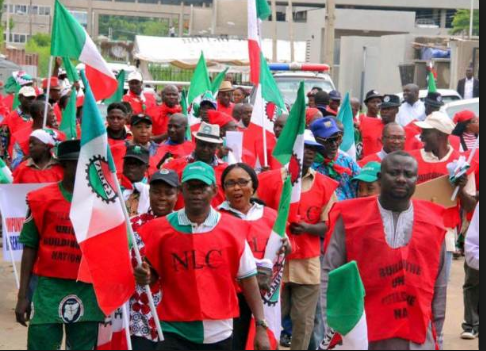Organised labour has faulted the pronouncement of Minister of Labour and Employment, Senator Chris Ngige that the federal government would only be able to pay the minimum wage if it retrenched some workers.
Ngige declared last week that the federal government would not be able to meet the demand of organised labour on the percentage for consequential adjustment of the N30,000 new minimum wage owing to dwindling revenue.
Reacting to the statement, Labour said Ngige was merely expressing a personal opinion when he said that the number of workers on the federal government’s payroll was very high and the only way to meet labour’s demand for a pay rise was to retrench some workers or sack those that were redundant.
President of the Trade Union Congress, Comrade Quadri Olaleye said the minister might have expressed his opinion, which certainly was not that of President Muhammadu Buhari or the federal government’s position.
“This is the personal view of the minister; it is not the position of Mr. President or the federal government’s. It is merely his personal opinion which cannot be taken as the government’s decision. We can only wait and hear from his boss, President Muhammadu Buhari, before we can know the stand of the administration,” Olaleye said.
The TUC President, spoke on the protracted negotiation for the minimum wage, said labour would only respond to the president’s position on the minimum wage issue.
Olaleye, who also disagreed with the minister’s position that there was no money to fund the minimum wage bill, said if adequate measures were taken by the government to plug loopholes and financial leakages in the system, it would have more than enough to settle the wage bill and do other things. “We are ready to engage them (government) either publicly or in a private meeting to discuss and we will tell them where to get the money. If you can block all the leakages, the government will have enough to pay its legitimate bills,” he said.
On the figure given by the minister to the effect that civil servants affected by the new minimum wage consequential adjustment was about 1.3 million, Olaleye said the number of civil servants in the federal government’s payroll was 890,000.
He clarifies: “So, if you subtract 890,000 from the 1.3 million declared by the minister, you will get 410,000. So, if they are budgeting for 1.3 million workers and the actual figure is 890,000, you see that they can pay. The provision they made for the 1.3 million workers can actually pay the 29% and 25% adjustments for workers on levels 7-14 and 15-17 as we have requested,” he said.
Speaking on the threat to down-size the workforce, Olaleye said that it would not be in the interest of the country especially at this time that unemployment rate was very high.
He said: “It will not be in the best interest of the country for a minister to declare that the only way they can pay the minimum wage is to declare redundancy or sack people in a country faced with high unemployment rate. This will be creating problems that will even lead to heightened insecurity in the land.”
On whether the labour union had been contacted by the government, the TUC president said no formal notice had been extended to them but that the minister said that the government would soon reconvene a meeting of the consequential adjustment committee.
He said that labour was bent on commencing industrial action if by the end of its ultimatum, the government failed to reach an agreement on the payment of the N30,000 new minimum wage.
Public sector workers are demanding that the salary of officers on grade level 07-14 should be reviewed upward by 29%, while that of officers on grade level 15-17 should be reviewed upwards by 24%, whereas government is proposing salary adjustment of 11% for public workers on salary grade level 07 – 14 and 6.5% consequential increase for public workers on grade level 15–17.
Following the stalemate, the Nigeria Labour Congress (NLC) and TUC met with the unions in federal civil service on Wednesday and issued a one-week ultimatum for government to conclude negotiation on the implementation of the minimum wage.
The workers said the federal government should commence immediate implementation of the signed agreement on consequential adjustment of public workers’ salaries with effect from 18th of April 2019 or be ready for industrial action at the close of work on Wednesday, October 16.
Source: THISDAY












